
What Kabul National Museum this is a sad place. Surrounded by wars, disasters and robberies, drowning in silence, since there are few visitors, it has been trying to tell the history of a country that dates back thousands of years for 100 years – since its foundation in 1922.
Among its few visitors, one was recently discovered a group of five Greek tourists. “In addition to my personal interest in getting to know places that are completely different from ours, I believe that visiting these countries is not accepting a regime, it is getting closer to people,” says Alexa Macri, gynecologist and team member. “Our small presence shows Afghans that they are not cut off from the world, the world takes care of them not only because they are part of the news, but also because there is sympathy for them from people of a different nationality and culture.
Museum it once housed over 100,000 exhibits. – prehistoric, classical, Hellenistic, Buddhist, Islamic. OUR civil 1992-1996 left it devastated, burned and looted. In accordance with first period of government (1996-2001) Taliban they destroyed dozens of exhibits, considering them “anti-Islamic”. The museum was renovated with her own money. Greek government after the American invasion in 2001.
After the restoration and care of the exhibits, today, among others, some inscriptions, columns And currency from reign of Alexander the Great And Hellenistic years.
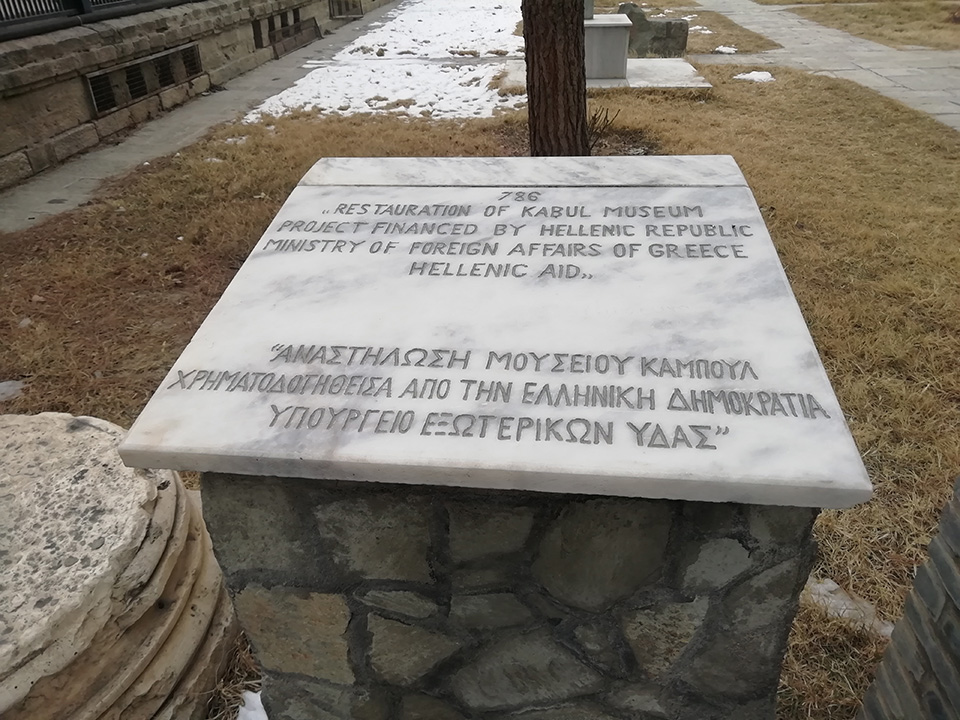
At the entrance to the museum, two young Taliban guard the gate. In 2001, the group blew them up and destroyed them. Buddhas of Bamiyantwo 50-meter statues carved into the rock, which stood upright for more than 1400 years.
“The Taliban will use all means for their political and economic gain,” he tells K. Nasratullah Hewadwall, director of the Hewadwall Center in Kabul. The Afghan organization was founded after the return of the Taliban to power and aims to preserve the cultural heritage of Afghanistan. “They faced the wrath of the world in the past when they destroyed the antiquities, they saw the world better, and now that they rule again, they need to prove that they have changed,” he adds.
The Greek believes that the Taliban have indeed changed. OUR George Lierosa veterinarian by profession, along with Aleka Makri and three other Greek men and women, visited Afghanistan for tourism purposes in October 2022. three weekstraveled 2700 kilometers and they paid 4000 euros each in order to see the cultural heritage of Afghanistan and especially Greek antiquitiesalways under column of armed Taliban.
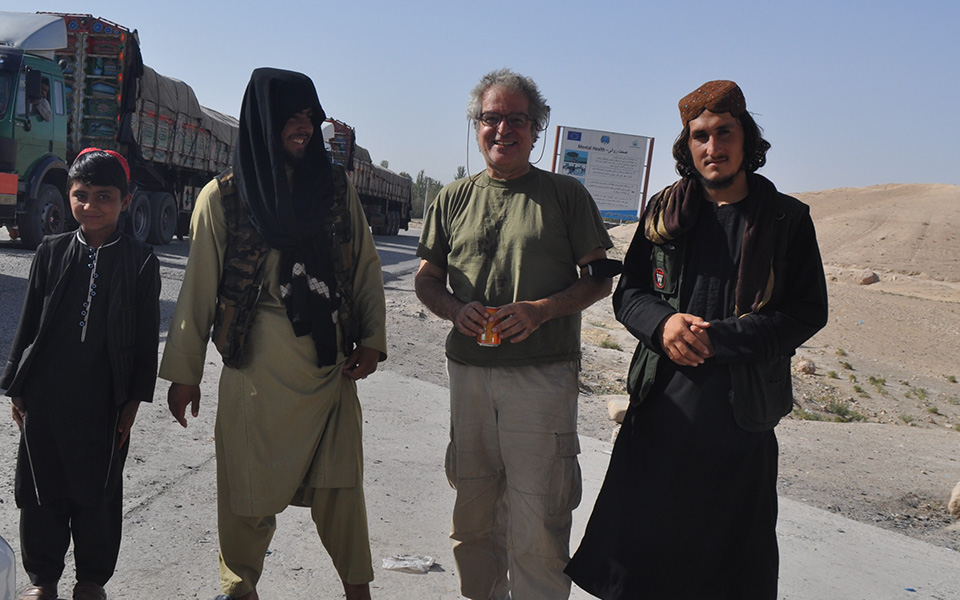
During their trip, three places of interest to Greece stood out.
“From the Taliban, we met two categories. Either young people at checkpoints when we stopped for control, or people in charge of culture, ”Giorgos Lieros told K. “Obviously, the cultural workers were among the most cultured people in the emirate and sincerely cared about the preservation of the monuments. In other words, very bad things can happen in the field of women, which all mankind rightly condemns, but it seems that in terms of antiquities they have made great progress compared to 20-25 years ago, when disasters occurred in Kabul. museum or the destruction of the Buddhas of Bamiyan. The people we met really had genuine anxiety and interest in archaeological treasures. Please note that in Kandaharresponsible for culture, ordered us to be taken to the cellars of the ministry to show hidden greek antiquities who keep them there on purpose precisely because they haven’t yet found a safe way to display them. They’re waiting for a museum to be built or something like that.”
Giorgos Lieros has been wanting to make the trip for years, but now, after 40 years of war, for the first time, he says, there is relative security that would allow them to visit places that, until recently, would have been unthinkable, since many of the archaeological sites were in areas controlled by the Taliban. During their trip, three places stood out because of their Greek interest – Ai Khanumas once better preserved Hellenistic city throughout Central Asia, Tilia Tepewhere one of the greatest archaeologists of the 20th century, Victor Sarigiannidisfound famous treasure of BactriaAnd Kandahar, the city where the Taliban movement was born in the 90s. “In particular, Kandahar is “Alexandria Arakhosiyskaya”, as it is called, and was built by Alexander the Great. Local archaeologists turned to Greek archaeologists for help in excavating the site, which they call “Alexander Castle” and they themselves believe that the camp of Alexander the Great was founded there when he built Kandahar.
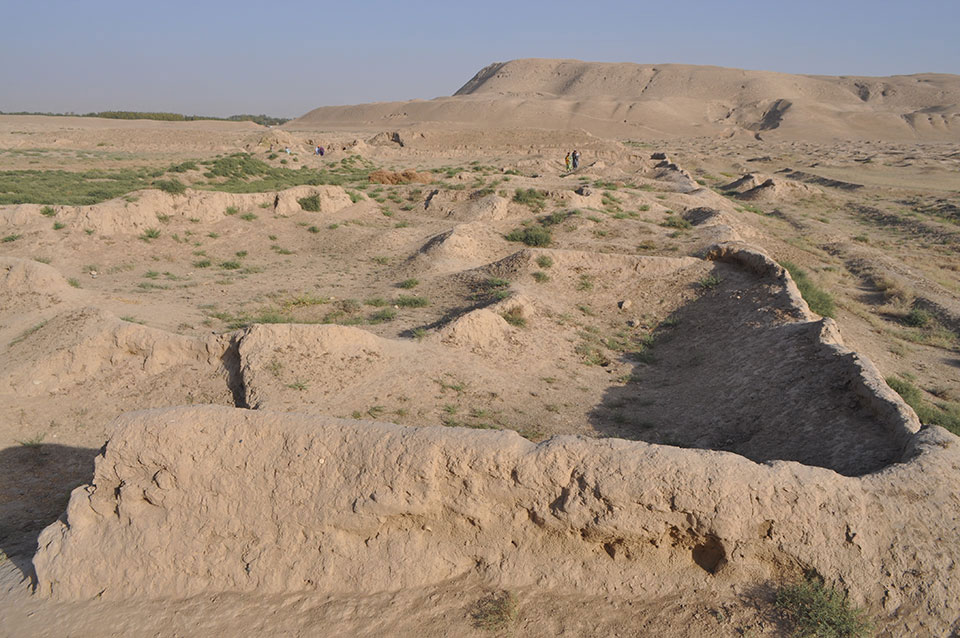
On Ai-Khanoum, the picture they saw was completely different from what they had seen in recent photographs. “The depiction of the ruins was heartbreaking. The hard parts are few, as the hard parts are not made of stone or marble, they are made from soil. It doesn’t rain often in this area, but when it rains, it dissolves them,” says Aleka Macri, adding that “of course they’ve become cool too.” antiquities from people digging for rewards and, of course, official missions.”
Taliban officials accompanying the Greek tourists asked them to exhaust their influence in order to revive European interest in Afghanistan’s archaeological treasures. “Basically, they need money, just like money is needed for everything. Archaeological sites are not a priority in the midst of a humanitarian crisis, but it would be a pity if they were completely destroyed. What can still be saved must be saved. And the Greek state should also be interested, because there are archaeological sites of interest to Greece.”
At some point in the place where the excavations of Sarigiannidis were carried out, one old guard, who was a worker and assistant to the Greek archaeologist, was clearly moved and said to them: “I am happy to meet you, after so many years when no one visits us. Your presence here shows that the world has not forgotten us.”
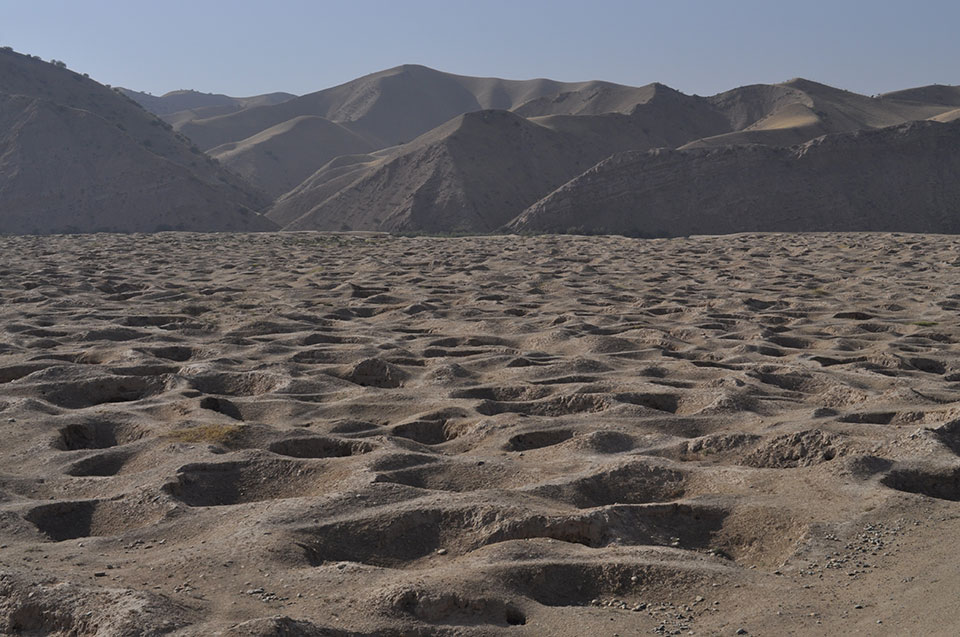
The presence of the five Greek tourists was so unique that it went beyond the archaeological sites they visited. Their visits to Afghanistan’s archaeological sites were widely covered by the mainstream media, to the point where some journalists thought they were archaeologists who had come to help preserve the country’s cultural heritage.
Giorgos Lieros agrees that the space in the Hellenistic city of Ai-Khanum has undergone incredible destruction. “Even if there was no poaching, think marble turned to lime local residents. Rain alone is enough to wipe out a space made up mostly of adobe bricks. The same problem exists in Tilia Tepe.” As Mr. Lieros points out, local archaeologists, as well as the emirate’s authorities, are calling on Greece, since the monuments are of cultural property of general interest, to finance even the installation of a roof or fences around the antiquities in order to deal with the problem of erosion, but also antiques.
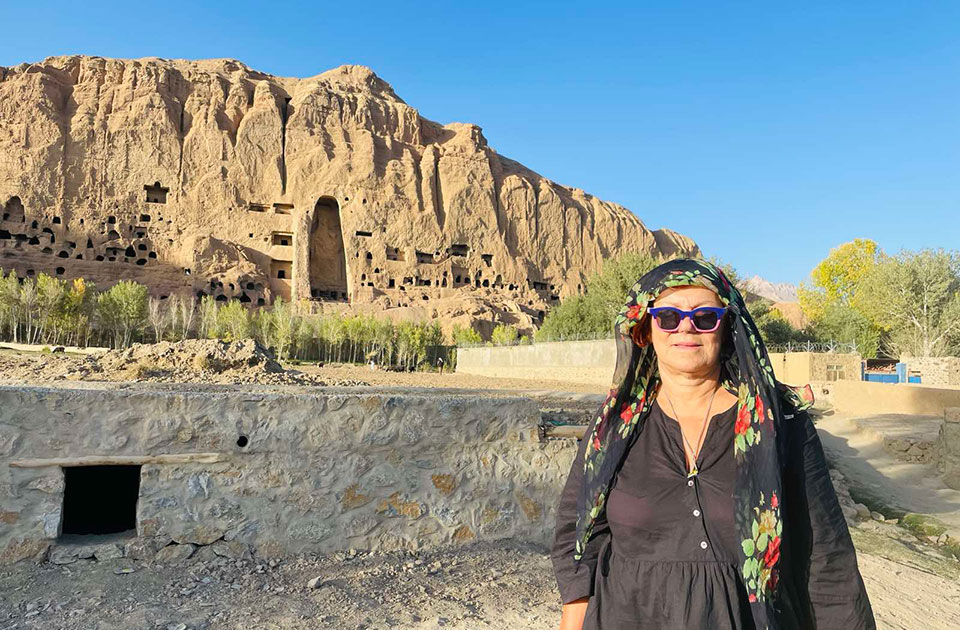
WITH the government of Afghanistan was not recognized by any state in the world and country to experience massive humanitarian crisisit is extremely doubtful that the Taliban regime will be able to enter into negotiations with the international community, or even with Greece at the moment, about the preservation of the country’s cultural heritage.
According to Nasratullah Khevadgol, even the National Museum in Kabul, due to sanctions and the lack of diplomatic relations between the Taliban and other countries, has postponed the return of many Afghan antiquities from other countries, while, according to the museum guards, shortly before the Taliban captured Kabul in August 2001. many exhibits were moved to crypts to protect them in case of destruction or looting.
“Many Afghans call their children Sikandar, on behalf of M. Alexandros, because he is considered a hero,” Nasratula tells K. “The Hellenistic period is part of our history, we learn from its unique culture, art, literature, philosophy, and as a cultural organization we believe that all this has a huge impact on our social life. Therefore, we call on Greece and the whole world together to help preserve our cultural heritage, because it belongs not only to us. It is the same”.
* All attempts to contact the Taliban about this were unsuccessful.
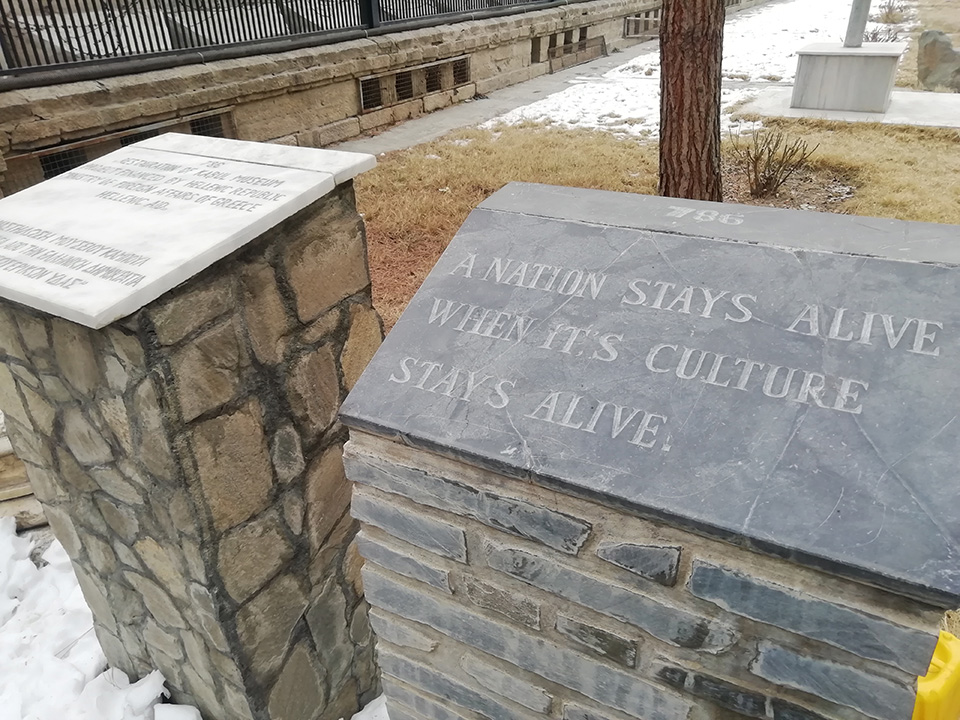
Source: Kathimerini
Ashley Bailey is a talented author and journalist known for her writing on trending topics. Currently working at 247 news reel, she brings readers fresh perspectives on current issues. With her well-researched and thought-provoking articles, she captures the zeitgeist and stays ahead of the latest trends. Ashley’s writing is a must-read for anyone interested in staying up-to-date with the latest developments.